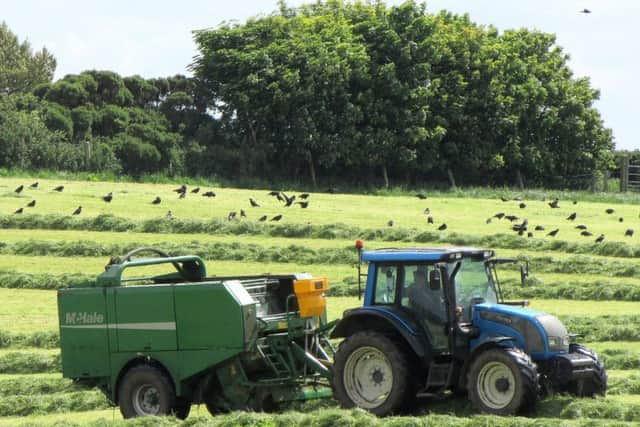Farmers want to see some economic certainty
and live on Freeview channel 276
This allowed farmers to get on with what needed to be done, knowing they were not scrambling to take advantage of a brief weather window. All good things do eventually come to an end, but those weather forecasters that promised a heatwave end to May were proved right. With the catch-up mostly complete farmers are set to take on whatever the summer brings. Weather always lifts the farming mood and creates a welcome sense of optimism. It even overcomes other issues, including Brexit, and that is probably just as well as that process is getting more complex by the day.
There are more plots and intrigue over Brexit within the government that in all of Shakespeare’s plays combined. Farming, like the rest of industry, is fed up with the politics and just wants to see some certainty about their economic future. That may be through a speedy Brexit, a longer than expected transition or as has even been suggested a delay to the whole process. That we are in this situation with just ten months to go until Brexit is due to happen, underlines the political morass it has become. Politicians, whether they supported leave or remain, need to accept Brexit is happening and focus on getting the best possible economic outcome for the UK.
Advertisement
Hide AdAdvertisement
Hide AdWith heat having finally arrived crops are benefiting across Europe from there being plenty of soil moisture to support growth. This is not universal, but reports from the European Commission and others now highlight good growing conditions.


However the legacy of difficult times remains, and forecasts are that while oilseed and cereal yields will be above the five-year average, overall output will be slightly down on last year. There is still a long way to go to harvest, but if that is maintained it should be a positive. On the dairy side fears of over-production, in response to better prices, are easing. Export markets remain strong, thanks to improving global economic fortunes, and this is allowing extra production to be absorbed. Again this should bring stability over the coming months.
This could all of course go horribly wrong, since agricultural markets are exposed not only to what happens on farms but to wider economic conditions, including oil prices. One of the big threats to beef is coming inexorably down the line. That is the Mercosur trade deal, which will give the South American countries, including Brazil, special tariff access to the EU for 99,000 tonnes of beef. Despite farm lobby opposition this deal is now unstoppable and is expected to be completed by July. One question still up in the air is the division of the quota allocation, between fresh and frozen meat. If the farm lobby could push successfully for at least 50 per cent having to be frozen and sold into manufacturing markets that might counter some of the damage. If however South America is free to opt for fresh beef targeted at the retail market then it will cause more damage. It is too late to stop this deal, but the farming lobby and Mercosur-sceptic member states, led by France and Ireland, could ensure plenty of devil is put into the detail. The justification would be Brazil’s poor hygiene record, which has seen a third of its poultry export capacity banned from the EU for falsifying salmonella test results.
One concrete example of the fallout from Brexit will be a vote this month in the farm lobby organisation, COPA, as to whether the UK farm unions can remain full members until the Brexit transition period ends and the UK is fully out of the EU. Whatever the outcome the UK’s contribution to COPA will be missed. But with Brexit all things change and it may well be better to go quickly, rather than limping on as a lame duck member to the end. That is up to COPA, but this reflects a wider issue of all EU bodies disengaging with the UK and as with any divorce we need to focus on new relationships, rather than past loves.